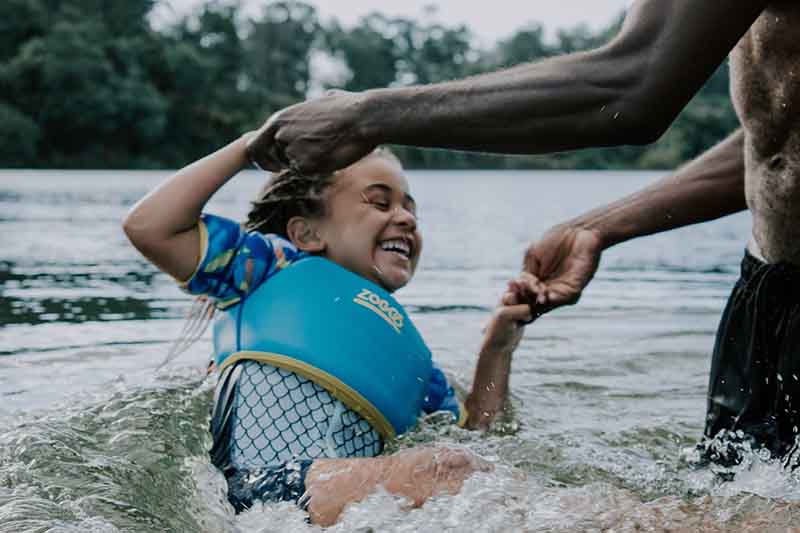Splish Splash: How to Stay Cool and Be Safe on Hot Summer Days
June 20, 2012

Photo by Mieke Campbell on Unsplash
by Molly Sullivan Taylor, Ph.D.
Pools, lakes, ponds and beaches are some of the best ways to beat the heat of East Texas. While it can be fun and kids love the water, accidents can happen in a matter of seconds that can change lives forever.
Nearly a thousand children die each year by drowning and most of those accidents happen in residential swimming pools. Drowning is the second leading cause of accidental death for people between the ages of 5 and 24.
Young children are especially vulnerable and can drown in less than two inches of water. The good news is that there are many safety precautions that can be made to ensure the safety of both children and adults while participating in water activities.
Safety Tips Whenever You are In or Around Water
Make Water Safety Your Priority
- Swim in designated areas supervised by lifeguards.
- Never swim alone, always swim with a buddy.
- Make sure that everyone in the family learns to swim well.
- Never leave a young child unattended near water.
- Have young children wear United States Coast Guard life jackets around water.
- Establish water safety rules for your family and enforce them.
- Be cautious around natural bodies of water like lakes, rivers and the ocean.
- Always wear a life jacket when boating.
- Avoid alcohol use around water.
Prevent Unsupervised Access to the Water
- Install and use barriers around your home pool or hot tub, including covers, alarms, and self-latching gates.
- Remove ladders and secure the safety cover on above-ground pools.
- Keep toys that are not in use away from the pool and out of sight so as not to attract young children.
Maintain Constant Supervision
- Always supervise children whenever around the water, even when lifeguards are present.
- Always stay within an arm’s reach of young children and avoid distractions when supervising children around water.
Know What to Do in an Emergency
- If a child is missing check the water first.
- Know how and when to call 911 or the local emergency number.
- If you own a home pool or hot tub have appropriate equipment such as reaching or throwing equipment, a cell phone, life jackets and a first aid kit.
- Enroll in a Red Cross or other safety courses to learn how to prevent and respond to emergencies.








